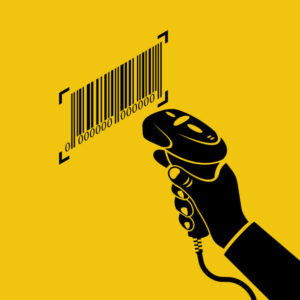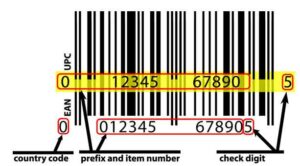Do you need a barcode for digital music?
Music barcodes explained
What is a UPC barcode?
A UPC barcode (or Universal Product Code) is used to represent and track your music as an entire physical or digital product, in contrast to an ISRC code which represents individual tracks or sound recordings.
Why you need a barcode
Whether you are selling your CD in a shop or on iTunes and other digital stores, a barcode is used to track your sales. Stores (digital or physical) will not sell music without one so you don’t really have a choice. Kerb Records can provide barcodes with your release.
Each release (single/EP/album) needs a separate barcode. For physical CDs, this will be a graphic usually on the back of the CD. For digital releases, this is a number that stores use to track your sales. These are two forms of the same thing.
How Many Barcodes Do I Need For A Release?
In the UK you need a different barcode number for your CD and your digital release. Kerb Records will provide as many barcodes as you need per release.
Do I Need A Different Barcode For Each Release?
Yes. This is for sales tracking. If you had two releases with the same barcode then the store would not know which to count the sales towards.
Can’t I Just Make Up A Barcode?
Unfortunately not. The numbers are calculated by a complicated formula and the first half is unique to the company that owns them. All systems are set up to detect fake barcodes. This is to keep all barcodes unique. Otherwise, your sales would go to another artist with the same barcode.
The Technical Bit:
For all you geeks out there: There are two main types of barcodes, UPC and EAN13. UPC is a 12-digit number usually from North America. EAN13 is a 13-digit number usually from the UK. Both forms can be used Worldwide. Online retailers systems are built to accommodate 13 digits in a barcode so a digit 0 would be added to the start of a UPC. For the physical barcode the number would remain as 12 digits.
Benefits of barcodes for music
Apart from being a requirement when releasing music commercially, barcodes also provide a range of benefits for artists. Here are the main reasons why you should never question the importance and value of barcodes in the music industry.
Royalties
Among the main reasons ISRC codes and barcodes are used is tracking sales, being critical for accurate calculation of revenues. In addition to recording sales and generating income from it, they are also vital for identifying the number of downloads or plays for each recording, hence ensuring that the true amount of royalties are being collected for artists. Examples for this can include public performance royalties from the airplay of tracks on radio stations.
Billboard charts
Besides being useful when tracking royalties, sales data can also serve as an indicator of how well a track or an album is performing in the market. Hence, such statistics generated with the help of barcodes make music billboard rankings possible. Therefore, to be eligible for participating in billboard charts, the music release would need to have ISRC codes and UPC/EAN barcodes and be registered in the Nielson Soundscan, which is a system collecting sales data of music products from over 14,000 outlets on weekly basis and serving as an information source for Billboard Music Charts.
Without having a barcode this would have been impossible, as the sales figures of the music release would have been “invisible” for the system and not be counted on the charts.
Intellectual property
Barcodes are a way of protecting ownership rights, which is especially critical nowadays when the music industry is concentrated around digital commerce. The ISRC codes are particularly important for facilitating the task of detecting illegal piracy on the web. As the ISRC codes are used as unique identifiers for specific tracks, when a false ISRC code with the track is detected, this most probably signals an illegal reproduction of the piece of music. In case of not having an ISRC code or a barcode, it would be impossible to trace downloads for the music release and, hence, making the process of having control over music piracy even more complicated.





